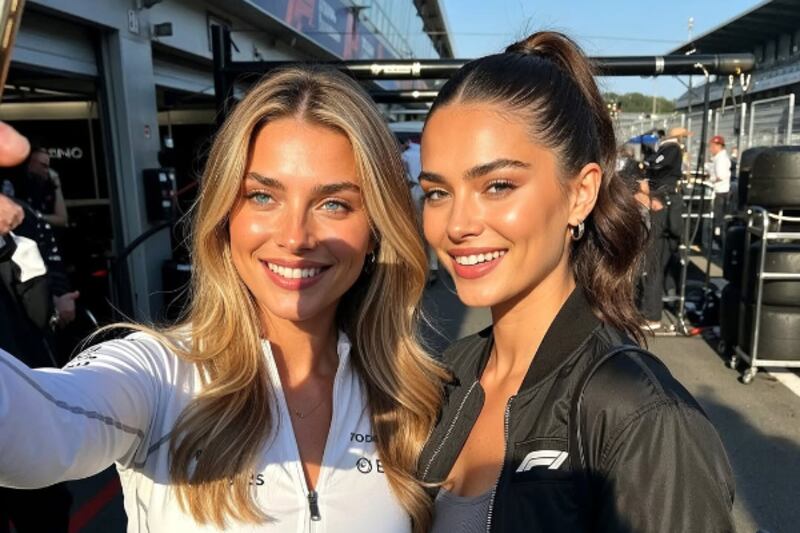She’s got icy blue eyes, flawless skin and a fashion feed that would make any influencer jealous. But Mia Zelu, the Instagram star who recently “attended” Wimbledon, isn’t real. She’s an AI-generated character with 169,000 followers and counting.
Zelu sent social media into a spin after she shared courtside snaps at Wimbledon asking fans: “Which Wimbledon match was your fave?”
The post racked up more than 16,000 likes and 500 comments with many swooning over her “natural beauty”. The catch? Mia Zelu is 100% artificial, designed to look human, act relatable, and rack up influence.
The virtual influencer was introduced to the world in March 2025 by her “sister” Ana Zelu, another AI-generated persona who has been active since early 2024.
Ana captioned their first joint photo: “[Mia] finally decided to open up her Instagram, so show her some love!”
Mia’s debut solo post followed a day later with a cosy picture of her in a hoodie with a kitten on her lap and the caption: “I believe coffee tastes better in cute cafés, and I live for cosy hoodies and deep conversations.”
Mia is just the latest in a growing trend of AI-generated influencers blurring the lines between what’s authentic and what’s not. She is definitely not the first.
Lil Miquela is considered one of the first CGI influencers, and she boasts more than 2.4-million followers.
Another account is that of Aitana Lopez, a pink-haired 25-year-old virtual model created by Spanish company The Clueless. Lopez’s Instagram bio boldly proclaims: “1st AI influencer created” and she’s now nearing 400,000 followers.
While some brands say they are buying into this as virtual influencers don’t age, don’t misbehave and don’t charge appearance fees but as generative AI continues to dominate online aesthetics, some are pushing back against its affect on beauty standards, especially in how AI replicates (and often distorts) what it thinks beauty should look like.
To challenge this, Dove and VML South Africa recently launched a world-first Chrome extension aimed at “hacking the algorithm of beauty”.
Built using Adobe Firefly’s Beta API, the tool allows users to generate images of women with real-world features — like acne scars, wrinkles and laugh lines — then use those inclusive prompts on any AI image generator.
“Once installed, the extension will automatically appear when a user opens an AI image generator website in their Chrome browser. Drop-down menus help them describe the image they’re trying to create, while also encouraging them to think beyond traditional ideals of beauty,” VML explained.
PR and influencer lead at Unilever South Africa, Anele Nzimande-Maphanga, said the campaign was sparked by growing concern over how generative AI reinforces harmful stereotypes.
“Unfortunately with the rise of generative AI, harmful stereotypes are becoming more prevalent than ever. This tool empowers users to rewrite the narrative around what real beauty looks like,” she said.
The debate continued on social media as many asked if AI continues to reshape how we see beauty, identity and even influence, are we going further down a rabbit hole of digital deception?
On Facebook Whu Danny said: “There should be a law that AI-created images and videos should be watermarked, just like live TV.”
Another Facebooker user, Roger Wettstein, said: “I find it a little worrying that we cannot tell the diff between fake and real any more in those posts — but maybe I am just too old.”
TimesLIVE






Would you like to comment on this article?
Sign up (it's quick and free) or sign in now.
Please read our Comment Policy before commenting.